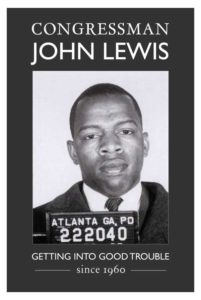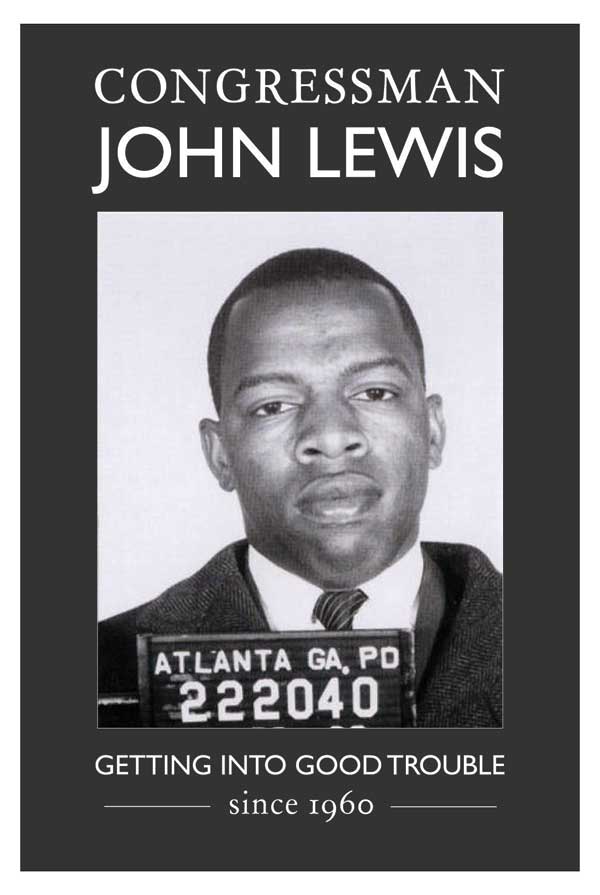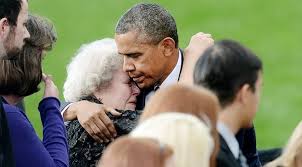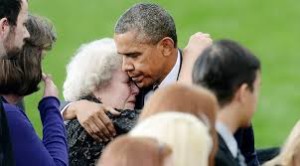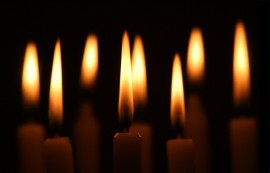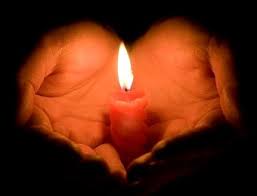Tonight we start the holiday of Purim where we read Megillat Esther, the Book of Esther. Purim is a Jewish story. And like so many Jewish Stories, it has multiple levels of meaning.
Purim is a lovely children’s story- good triumphs over evil, a savior rescues us from the clutches of despair. Righteous deeds are rewarded and the people rejoice and live happily ever after.
Purim is also a great adult story, the story of sex, power and palace intrigue. As gripping as any modern drama on cable; forces vie for control, often ruthless in tactics. The heroine uses all her skills and wiles to rescue her people. Shonda Rhimes has at least a full season of Scandal right here in our Megillah!
Purim is also a story with a deeper and darker side, which I believe is the reason why the Book of Esther is included in the Bible; it is a cautionary tale. Purim admonishes us about the use and abuse of power.
How power can work and how it can corrupt.
What happens when power is not challenged and what happens when it seduces. What might happen when we move from being drunk with complacency, to being drunk with power. Megillat Esther portrays when the powerless are subjected to the whims of the powerful- those who are consumed with only their own power driven by the sense of self importance that comes from it.
Haman plans to destroy the Jews because Mordechai does not bow before him. Mordechai and Esther work together, conspiring if you will, to overthrow Haman’s power and gain power for themselves. To achieve these ends they use nothing less than seduction and lies to lure Haman into a trap and inflame the wrath of King Achasverus. The book of Esther demands us to question, “to what lengths are we willing to go to acheive power?”
But then Megillat Esther continues to push us and asks,“What do we do with power once it has been acheived?”
In a kind of “Perverse Dayenu” we learn that it is not enough that the Jews triumph- Esther is the Queen and Mordechai becomes the King’s Vizier. Nor is it enough that in an ironic twist of fate that Haman is executed on the very gallows he built to hang Mordechai. The Jews then demand the execution of all of Haman’s sons and then 50 and then yet another 750 people in Sushan. But it is still not over; for then there is a wholesale slaughter of 75,000 Persians in retribution. This is a place where the phrase “Absolute Power corrupts Absolutely” could surely have been coined. (Lord Acton 1887)
We go from powerless, to powerful; from innocent to corrupt; from holding the moral high ground to losing all moral authority giving way to the basest of human emotion.
So how this story resonate for us today?
We are taught that with power comes responsibility. That responsibility includes protecting those who are less fortunate and powerless, protecting our system of free expression, and protecting our ability to remain a full and vibrant part of this nation we call home. We have come a long way to achieve our comfortable public place in American society. But like our Purim story it was not always so.
Esther concealed her identity from the king until Mordechai gave her the strength to step forward. But what if she did not have the strength? Who would have spoken for the Jews of Persia? Mordechai says that if it was not Esther, someone else would step forward, but in the story we know only two, Queen Esther and her Uncle Mordechai.
Our tradition suggests Mordechai placed his hope in a higher power, but he knew his life was actually in Esther’s hands. And likewise, the future of our next generations is in our hands.
But ominous signs are on the horizon. What if we became unable to advocate for ourselves? It is not as outlandish as it may sound. Many of you can recall the deafening silence of the American Jewish community in the 1930s and 40s. With only a few exceptions such as Rabbi Stephen Wise, our American community retreated into its fear as the Nazi’s systematically executed the Holocaust. Today we can hardly imagine such gripping fear. But this fear is alive as is the hatred. It lives on our college campuses around the country and the implications are foreboding.
We have just finished the national Israel Apartheid week. This is a week of consciousness-raising held on campuses around the country protesting that Israel is no more than an apartheid state dedicated to the oppression of the Palestinians. The attempt to De-legitimize the State of Israel also finds a voice in the growing organized economic boycott of Israel known as Boycott Divest Sanction or BDS. This group was responsible for the commotion surrounding the Soda Stream company’s factory in the West Bank. Students for Justice in Palestine (the SJP) is vehemently anti-Israel and actively protests against the State and its legitimacy on campuses across the country. Not to be outdone, the academic community has, in real terms, taken up the Anti-Israel cause of the Palestinians by supporting the boycott of Israeli scholars through the American Studies Association, the ASA.
The groups on campus have used thuggish tactics to bully and intimidate our college students. And as their teachers align with these politics, the classroom becomes a very uncomfortable, threatening place, instead of a place that is supposed to nurture. The effect on our youth is profound.
Many kids become turtles. They withdraw into their shells and hope that it will all blow over. Many of our kids find themselves fearful. Unable to express an alternative point of view, students on campus are ostracized. They are alienated from their Judaism and any relationship they may have to Israel. These young people are scared to think for themselves or express their opinions. And if they are courageous enough to try, they are subjected to public ridicule and humiliation. If we do not work to support our youth, then we risk raising a whole generation of Jews, our future, unable to withstand the onslaught of hate and bigotry. We will have completely ceded our power to those who would oppress us.
So we must heed the lessons of Megillat Esther and embrace our power with respect. We need to reach out to our youth by giving them a solid understanding of their Jewish identity and Jewish values before they leave for school and begin to explore the world. But we must also support them in these college years of discovery by continuing to be present. We can do this by supporting vibrant Hillels on campus, and as Congregations by remaining in contact with them while they are away and by making them feel warmly welcomed back into our temples when they return. Finally, but so importantly, we must place a Reform Rabbi on every college campus with a significant Jewish population to nurture and care for our children.
The future is theirs, but the power to make that future bright lies with us and what we do now.
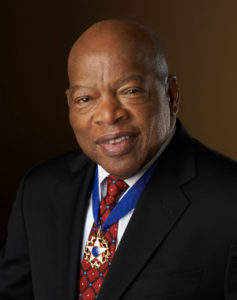 So many of us are rooting for Representative John Lewis. An icon of the civil rights movement and leader in the House of Representatives, he has stood up to injustice by sitting down. We applaud Mr. Lewis for galvanizing other members of the House to declare that Congress can no longer ignore its responsibilities.
So many of us are rooting for Representative John Lewis. An icon of the civil rights movement and leader in the House of Representatives, he has stood up to injustice by sitting down. We applaud Mr. Lewis for galvanizing other members of the House to declare that Congress can no longer ignore its responsibilities.